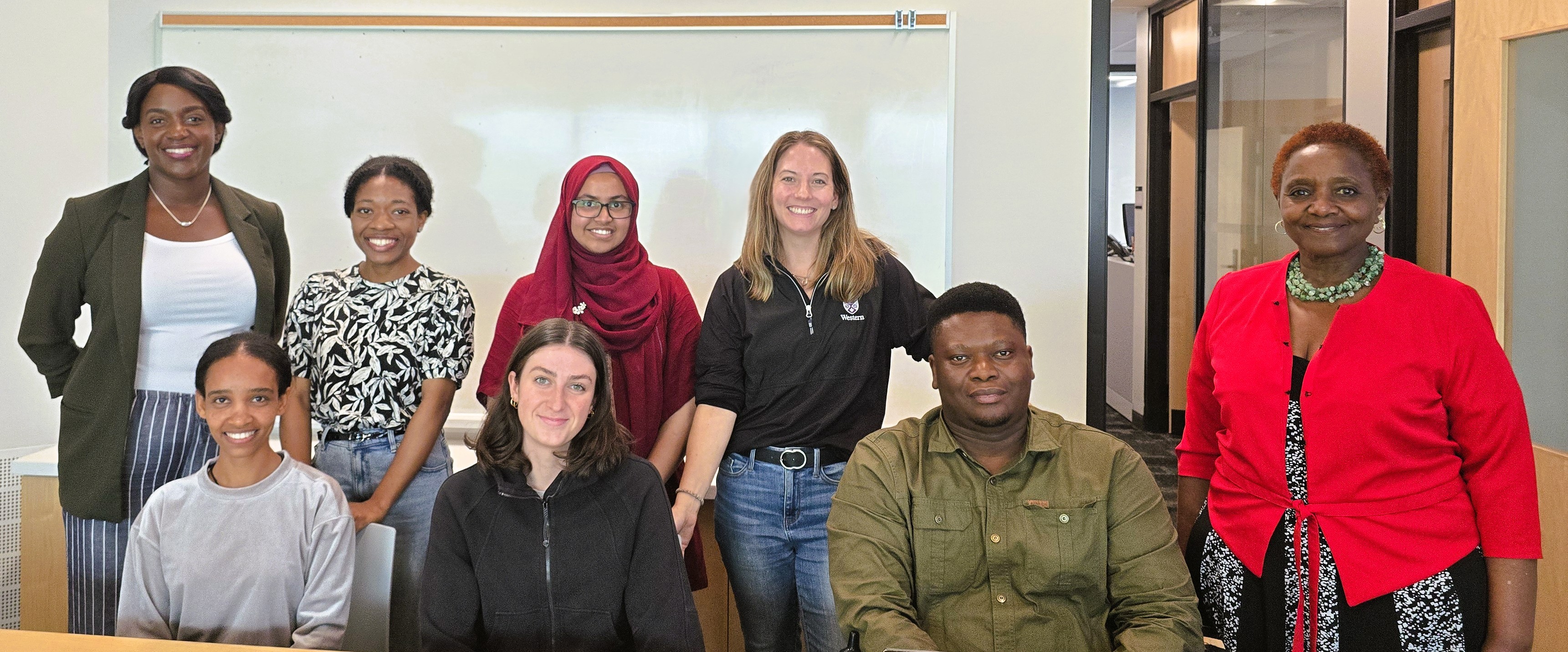Communities of Practice
Why Communities of Practice?
A communty of practice (CoP) is comprised of a group of individuals who meet on a regular basis to discuss a shared concern or problem. This community is supportive, collaborative, and focus' on the sharing of knowledge.
CoP's are widely used in technology firms. Therefore by participating in regular communities within our training program, students are equipping themselves with skills preparing them for careers both within academia and industry.
There are 5 CoP's required to be completed during the first year of a trainees participation in Engineering Health Equity (EHE). The diverse range of topics covered within each CoP serves many purposes, one is to enbed the content of the EHE program within trainees' ongoing research activities.
Communities of Practice in Engineering Health Equity
The Engineering Health Equity Program will be structured as a system of five interlocking communities of practice (CoP) that will promote peer and near-peer mentorship at all training levels. A CoP is a well-defined toolkit for "learning while doing" that is ideally suited to the novel, multidisciplinary subject matter of the EHE program.
The structure will establish and sustain a continuously evolving learning environment in which faculty mentors, trainees, and external partners that will collaboratively develop a coherent, functional understanding of the criteria, methodologies, and outomes that define frugal biomedical innovation.
For our trainees, this approach embeds the content of the EHE program with their ongoing research activities, yielding a deeper understanding of the connections among the professional skills they learn and the application of those skills to their research.
CoP's are a time commitment of approximately 2 hours/week. Students will complete no more than two CoP's simultaneously.
CoP A: Frugal Innovation Principles for Medical Devices
Trainees will learn to apply a 4A framework: affordability, appropriateness, availability, and accessibility for frugality analysis of medical devices (S. Chakrawarty, Technovation, vol. 112, art. 102397, 2022).
The 4A framework addresses the interaction among technocal, business, and societal factors that are relevant to the design, manufacturing, and deployment of frugal medical technologies and focuses on adoption and use of innovations by patients, caregivers and healthcare systems, as opposed to a narrow emphasis on technical performance as the ultimate indicators of success for an innovation.
CoP B: Appropriate & Effective Implementation of Open-Source Software
Open-source hardware whose design is publically available to be freely modified, built, and distributed appears to present an ideal solution to the accessibility and affordability challenges faced by medical devices in low-resource settings (A. Ahluwalia, C. De Maria, and A. Diaz Lantada, Engineering Open-Source Medical Devices: A Reliable Approach for Safe, Sustainable and Accessible Healthcare, Springer Nature, 2022).
CoP C: Enablers & Barriers to Diffusion of Frugal Medical Innovations
This CoP will communicate the findings of EHE's interdisciplinary research to the program's larger cohort of trainees and researchers focused on technology development to encourage our program's participants to incorporate best practices for promoting medical technology diffusion into their work.
CoP D: Contemporary Issues in Remote & Global Health
This CoP will study healthcare needs and capacities in low-resource settings within Canada and globally. Questions the trainees may explore will include: trends in burden of chronic diseases and how those trends should inform global health research priorities (1), requirements for ethical and appropriate use of AI in biomedical technologies in low-resource settings (2), best practices to support scalability and reproducibility of medical technology research in low-resource settings (3), how the COVID-19 pandemic illuminated the need to better integrate biomedical research carried out in low-and high-income countries (4), and how health inequities in remote areas of Canada (5) are similar to and different from low-resource settings in the global South.
1. K. E. Sleeman, M. Maja de Brito, et al., Lancet Global Health, vol. 7, pp. E883-E892, 2019.
2. N. Schwalbe and B. Wahl, Lancet, vol. 395, pp. 1579-1586, 2020.
3. I. Holeman and D. Kane, Infor. Technol. Development, vol. 26, pp. 477-505, 2020.
4. J. J. H. Park, R. Mogg, G. E. Smith, et al., Lancet Global Health, vol. 9, pp. e711-e720, 2021.
5. D. Martin, A. P. Miller, A. Quesnel-Vallée, et al., Lancet, vol. 391, pp. 1718-1735, 2018.
CoP E: EDID in Frugal Biomedical Innovation
This CoP will prepare students to participate in research in unfamiliar cultural contexts and equip them to be
future champions of EDID considerations in BME research and practice. The CoP will integrate modules available from Western’s Own Your Future program (a professional development program offered by the School of Graduate and Postdoctoral Studies), Global Health Equity Hub, Africa Institute, and Office of Indigenous Initiatives.
The second component of this CoP will supplement the above activities with guided study of topics
specific to EDID in frugal medical devices research. The CoP’s content will draw in part from Dr. Mutumba’s research investigating gender-specific enablers and barriers to women’s and girls’ participation in global health innovation. The CoP will also take advantage of a library of 31 case studies created for a healthcare EDID course Dr. Katsivo teaches that were written by health professions trainees during field placements in sub-Saharan Africa.

